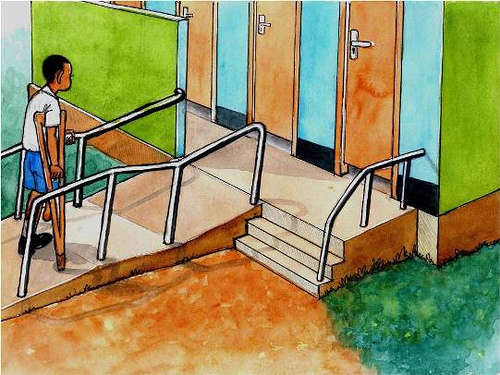
College is full of firsts and new experiences. For many students its the first time they feel entirely free to make their own decisions on big topics like drinking, dating, and sex.
Old stereotypes might still linger and make you think that college is when you “sow your oats” or that male sexual health should be equated with “boys will be boys.” However, a steep increase in STDs in college-aged young adults has many people calling for more prevention.
STDs by the Numbers
Half of all new STD infections happen in people between the ages of 15 and 24. This statistic is daunting, but it’s even more eye-opening when you consider that people in this age range only account for one-quarter of the sexually active population.
Of the most common STDs, young people make up 70 percent of new gonorrhea cases, 63 percent of new chlamydia infections, and just over one-quarter of new HIV diagnoses. Other infections topping the list of common infections in college include human papillomavirus (HPV) and herpes.
Not only are they contracting these conditions faster than any other generation, but they’re placing their overall health and wellness at risk for years to come. Not treating STDs can lead to serious health conditions. Untreated STDs increase your risk of getting or giving HIV, decrease your ability to get pregnant, and can cause long-term abdominal pain.
Why is This Generation at Risk?
People have been having sex since the beginning of time. College is certainly not a new experience, and sex during college isn’t new either. So, why are young people across the country choosing to have unprotected sex in college?
Fear of Talking to Providers
Talking about sex with your girlfriends or buddies can be a little awkward. You might even stretch the truth or gloss over some of the details. However, when you’re face-to-face with your healthcare provider, being open and honest about your sexual health is critical.
Many young people are reluctant to discuss sex and any risky behaviors with care professionals. Whether it’s sexual preferences, use of condoms, or unusual symptoms, getting young adults to talk about sex with the people who can give them the most accurate information can be challenging.
Lack of Access
Most college campuses have health centers, but if you’re concerned about an STD, that chance that you might run into friends or that cute guy from English 101 at the clinic sounds like a nightmare.
This can have many students looking for other providers, but lacking access to transportation to get off campus. Health coverage is another barrier for many young people. Without health insurance, most college students can’t afford a visit to the doctor for STD testing.
Having Multiple Sex Partners
College can be a breeding ground for risky behaviors like drinking, drugs, and having sex with multiple partners. If you have multiple sex partners throughout your lifetime, you increase the likelihood of having sex with a partner who has HIV or another STD.
Studies show that gay and bisexual men are at an increased risk for STDs and HIV. Since college is the time that many in the LGBTQ+ community come out and start to explore their identities, risky sex behaviors that many college students engage in put them at an even higher risk.
Downside of Social Media
Check the phone of any college-aged person, and you will probably find Instagram, Facebook, SnapChat, and other apps. Social media platforms can help them communicate with others and feel connected, proving that there is a definite connection between social media and well-being.
There might even be a connection between social media and the increase in STD rates. There is limited data on the link. However, as the rates of sexually transmitted infections increased, so did the use of Facebook, Twitter, and other social media sites.
Many people spend hours on social media displaying images of their best selves. Sometimes these images can lead you to believe that others are ahead of the game on sensitive topics like dating and sex. Young people can suffer from the fear of missing out, or FOMO, which might be leading to risky behaviors.
Inadequate Screening
With minimal coverage, lack of transportation, and not wanting to share details of your sexual history with physicians, it’s easy to understand why many young people aren’t receiving proper STD screenings. Because many STDs don’t cause noticeable symptoms, you can have sex with others and spread the STD before you even realize you had it in the first place.
An Ounce of Prevention
The best way to prevent STDs is to abstain from any kind of sexual activity unless you’re in a committed monogamous relationship with someone who isn’t infected. However, thinking that college students will abstain from sex altogether isn’t likely. To be realistic, experts are looking at new ways to educate students about the risk of STDs.
If you’re sexually active and under the age of 25, get tested yearly. You’ll probably need to get tested at least once a year after your initial testing, depending on your sexual activity and health. If you experience any concerning symptoms, be sure to get tested right away and let the provider know exactly what symptoms you’re having.
Before engaging in sex with a new partner, have an open, honest conversation about your infection status and the use of condoms. Just remember that condoms aren’t 100 percent effective against STDs or pregnancy.
Because young people enjoy social media and apps, why not try an app that lets you privately share your verified STD status with others? The Safe Sex App offers over 75,000 locations for testing, or you can schedule in-home testing. You can import your test results from almost any doctor, lab, or clinic. Then, if you’re ready to make a move, you can share privately share your results on your phone with your potential partner.
Staying Healthy in College and Beyond
While college is a great time in life, it’s short-lived. You have lots of years to live after college and enjoy a healthy sex drive. Your future is important, so protect yourself against STDs today and in the future.






Be the first to comment